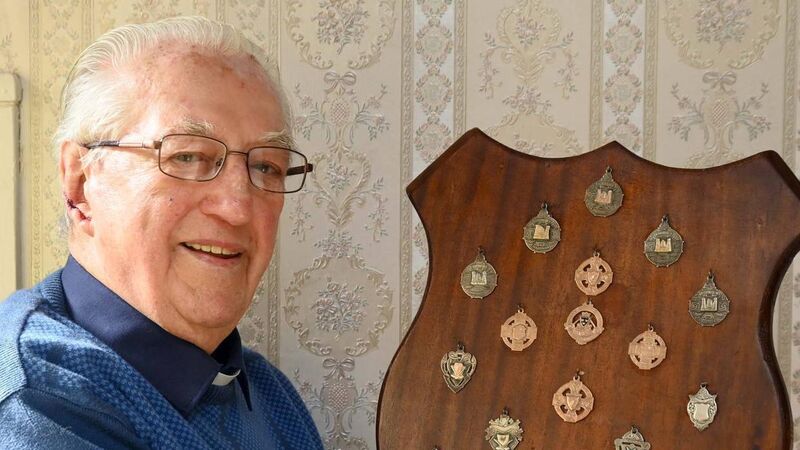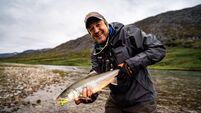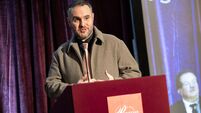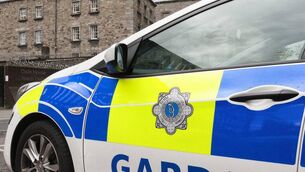Farewell to Cork priest and All-Ireland winner Canon Colie

In his 95th year, his memory of his youth and early life was amazing, and the clarity with which he recalled dates and times and scores of hurling matches was uncanny.
His grandmother was an Egan from Bartlemy so over the years we often spoke about ‘tracing’ and connections, and though both of us had Twomey ancestors on the maternal side, we weren’t related.
Meeting him at home on the Youghal Road in Midleton that year was an amazing experience. His stories of life in St Colman’s, Fermoy, as a boarder during the war years were fascinating.
Decades later, I attended Colman’s but as a day-boy so I never got to see legendary places like ‘Siberia’ where the boarders lived.
I think back now of that grand evening with Canon Colie and I am still gobsmacked at his brilliant memory. Winning three Cork County Intermediate Hurling Medals with Midleton and Carrigtwohill, playing with the Cork Minor and Junior Hurling teams, and then, in 1952, his ultimate accolade. His displays in the Cork championship earned him a place on the Cork Senior panel.
For the All Ireland semi-final against Galway, he was picked at corner forward on a team that would go on to win the three-in-a-row. That 1952 semi-final was played in Limerick in July and on the side with Colie that day were fellow East Cork hurlers Christy Ring, Paddy Barry, Willie John Daly, Liam Dowling and Gerard Murphy.
‘Tight’ was how he described that contest with an amazing full-time score of Cork 1-5 Galway 0-6.
He didn’t start in the facile victory over Dublin in the final but got his Celtic Cross winner’s medal - one of his proudest possessions.
In 1953, young Colman O Donovan, along with 53 others, was ordained to the priesthood. That was a golden era for Irish vocations as regards numbers entering seminaries and being ordained for every diocese in the country.
Because there were so many being ordained, many young Irish priests were given posts in England, and Fr Colie spent a year in a parish in Eastbourne, Sussex.
The following year, 1954, as Cork completed the three-in-a-row, he was back home. Firstly stationed in Mallow followed by terms in Donoughmore, Glantane, Youghal, and finally Inniscarra, where he stayed until his retiral in 2003.
After that, it was back home to where it all began for him - his beloved Midleton.
Of course, declining numbers at Mass and lack of vocations bothered him, but still he remained positive. He told me and so many others that having ‘clergy up on a pedestal’ was of no benefit in teaching the Word of God.
Truly, he was a man of the people and always stayed grounded in his faith and in his other passion - his love of Cork hurling.
Two years ago, he did say that his biggest regret or disappointment was ‘that Cork hurling wasn’t doing better’. From the 1940s to the early years of this century, he’d seen the Red and White of Cork bringing home the Liam MacCarthy Cup and now we were enduring, as he called it, ‘this awful hurling famine’.
Was it ironic then, or fortuitous, or a sign of better days to come, that just literally hours after a magnificent Cork victory over the ‘auld enemy’ on Sunday last in the Park, Canon Colie O’Donovan should depart this life?
Sometimes, the stars align by accident and sometimes it seems as if by divine intervention or inspiration.
We gathered in glorious sunshine in Riverstown on Saturday afternoon for a poignant but special hurling occasion.
Colie O’Donovan was a proud son of East Cork, as was the late, great Teddy McCarthy. Life and its span is a mystery. In 2023 just as Canon Colie was celebrating his 95th birthday, Teddy Mac was taken from us far too soon.
Without a National League Title since 1998, and without a Senior All Ireland since 2005, truly these have been famine years on Leeside.
On Sunday, then, Tipperary came down the road to the Park for this year’s League Final against Cork. In the final programme notes for Sunday’s game, GAA President Jarlath Burns referenced the first ‘recorded’ Cork v Tipperary hurling game played back in 1741.
Another coincidence - in 1739 and 1740, Ireland suffered a severe famine with tens of thousands dying due to rain, late frosts, and very cold April and May weather- these all led to severe food shortages and mass starvation. By the autumn of 1741, things were improving and that year’s harvest was fairly good.
There was a sense of relief and gratitude and different ‘harvest festival’-type events were held in thanksgiving throughout the land. It is thought that the local landlord in Rathcormac, who was patron of the hurling team, sent out a challenge for a hurling contest.
Denis McGrath brought a team down from Tipperary and the sides met in the townland of Glenagowl. Who won? No newspaper reports, no social media, not even hawkeye!
A Gaelic poet from Tipperary composed a number of verses in praise of his team, claiming they won - faith, the Cork boys were having none of it, and Seán Ó Murchú from Carrignavar - a great scribe with a quill and ink, wrote a ‘reply’ to the first poem setting the record straight that Cork won!
Well, there was no disputing the result on Sunday and Cork are the League champions.
Thanks for the wonderful memories, Canon Colie - the likes of you will not walk this way again.







 App?
App?




